International
Black chefs carve out a place in Brazilian cuisine
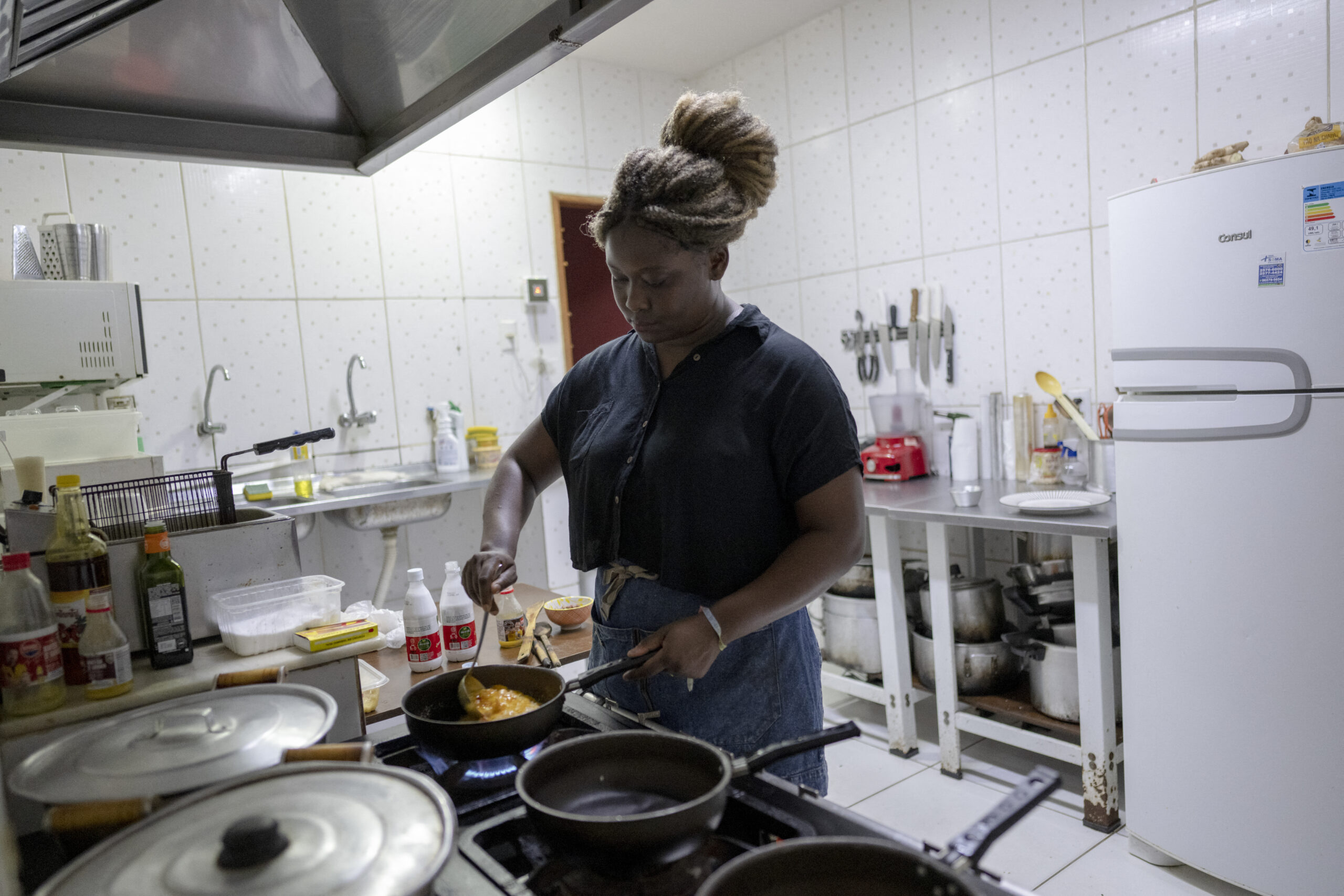
| By AFP | Louis Genot |
From a tiny restaurant on a dead-end street come the enticing aromas of chicken, pork and shrimp as an award-winning chef slowly steams dim sum — the finger food typical of Cantonese cuisine.
This is not Hong Kong but rather Rio de Janeiro. And the cook is a black Brazilian.
“Many people ask me, ‘Where is the Chinese chef?’” Vladimir Reis, 38, says with a chuckle. He opened Dim Sum Rio almost two years ago in Laranjeiras, a wealthy neighborhood of the city.
“They ask me why I make Asian food and not African or Brazilian food,” said Reis. “But I am free to do what I like, without being restricted by what people think I should do because of the color of my skin or the country I come from.”
Things are going very well for this burly man with thin dreadlocks down to his shoulders. His dim sums are wildly popular and he has been named a winner in a new competition called the Black Gastronomy Prize.
This contest, whose first edition was held in November, honors the best black restaurant industry people in Rio in an array of categories such as waiter, sommelier, sous chef and pastry chef, all in a country where racism is deeply ingrained.
“There are many nice stories, and the time has come to acknowledge all of this talent,” said Breno Cruz, a university professor who created the prizes.
‘White universe’
Best restaurant honors went to Afro Gourmet, run by Dandara Batista, 37, who serves up African dishes in Grajau, a working-class neighborhood of Rio.
In the small kitchen of the eatery she opened in 2018, she fixes a dish called hauca rice — originally from Nigeria and featuring shrimp, dried meat and a golden sauce that is a blend of coconut milk and palm oil.
The menu also boasts a dish from Senegal called mafe and a South African one called chakalaka. Batista highlights where her creations come from by adorning them with little flags corresponding to the country.
Batista said she always felt a strong connection to the food of the northeastern city of Bahia, where her father’s family comes from.
“But when I did some research I realized there is a strong African influence on Brazilian cuisine in general,” said Batista, who wears her thick hair in braids.
Batista has been cooking since she was a girl but thought of it as a career option only after working for many years as a journalist.
“Gastronomy was always linked to a white universe, so I did not see myself there,” said Batista.
She switched jobs four years ago after taking a class in gastronomy.
She lamented the fact that there were no courses on African cuisine, so she learned how to make dishes from countries far from Brazil such as Angola, Cape Verde, and Sao Tome and Principe.
‘No reference point’
Like Batista, Reis’s life was also influenced by things not Brazilian, in his case a trip to Singapore. “When I saw dim sum the first time I thought it was marvelous, so delicate. Right away I said to myself, ‘we don’t have this in Rio.’”
Reis, born and raised in Rio, gives a personal touch to his dishes, using cassava and palm oil, which are basic ingredients in Brazilian and African cooking. At Dim Sum Rio, he decorates his dishes with edible flowers and green leaves of cabbage to cover them, like little roofs.
Reis had worked in several restaurants but never made it all the way to chef. Although he has a strong resume, he says that in job interviews white colleagues with less experience would always beat him out.
“They always wanted me to be a sous chef, or a basic cook,” said Reis, who grew up in a favela, or slum, in central Rio called Santa Teresa.
In Brazil black or mixed-race people account for 54 percent of the population but only 30 percent of leadership positions in companies.
Reis says he would have started his own business earlier if he had seen more black chefs in the news media.
“I only saw black chefs on reality shows from other countries. Here in Brazil I had no reference point. The job market has opened up in the last few years but racism is still very much a part of society.”
International
Mexico requests extradition of ‘Mini Lic’ for murder of journalist Javier Valdez
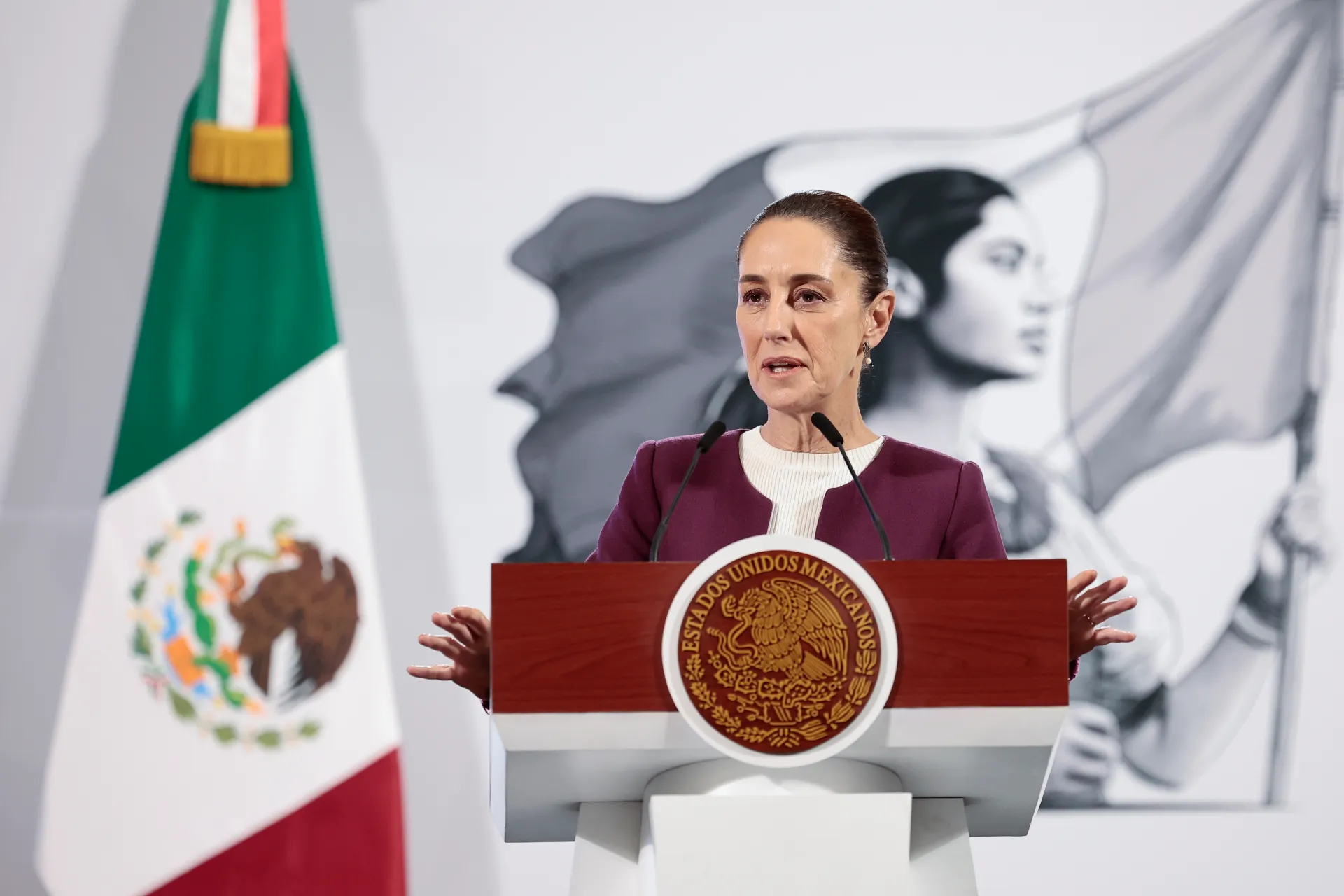
The Mexican government has requested the extradition of Dámaso López Serrano, a former high-ranking member of the Sinaloa Cartel, who is accused of masterminding the 2017 murder of Mexican journalist Javier Valdez, the Attorney General’s Office announced on Tuesday.
López Serrano, known as “Mini Lic,” was arrested last Friday in Virginia, United States, on charges of fentanyl trafficking, a crime he committed while on parole.
“This is the key issue for us, he [López Serrano] is the mastermind of this murder. The rest of the perpetrators are already processed and in jail, he was the one missing,” said Attorney General Alejandro Gertz.
“We immediately made the extradition request,” the official added during the routine morning press conference of President Claudia Sheinbaum.
Valdez, an award-winning reporter specializing in drug trafficking and correspondent for AFP and the newspaper La Jornada, was murdered on May 15, 2017, in front of the office of his magazine Riodoce in Culiacán, the capital of Sinaloa state.
“Mini Lic” was originally arrested in 2017 when he voluntarily turned himself in to U.S. authorities and pleaded guilty to trafficking methamphetamine, heroin, and cocaine. In 2022, he was released on parole.
Gertz confirmed that the Mexican Attorney General’s Office had requested López Serrano’s extradition “countless times,” but Washington had declined to act on the request because he had become a “protected witness” for the U.S. government and “was providing a lot of information.”
“Now, with this situation where they themselves are acknowledging that this individual is still committing crimes, I think there are more than enough reasons for them to support us,” the prosecutor added.
The Sinaloa Cartel is one of the largest drug trafficking organizations in Mexico and was founded by Joaquín “El Chapo” Guzmán, who is serving a life sentence in the United States.
Culiacán has been shaken by a wave of murders since the arrest of Ismael “Mayo” Zambada, another key leader of the cartel alongside Guzmán, on July 25 in New Mexico, United States.
International
Cuba’s government stresses openness to serious, respectful U.S. relations
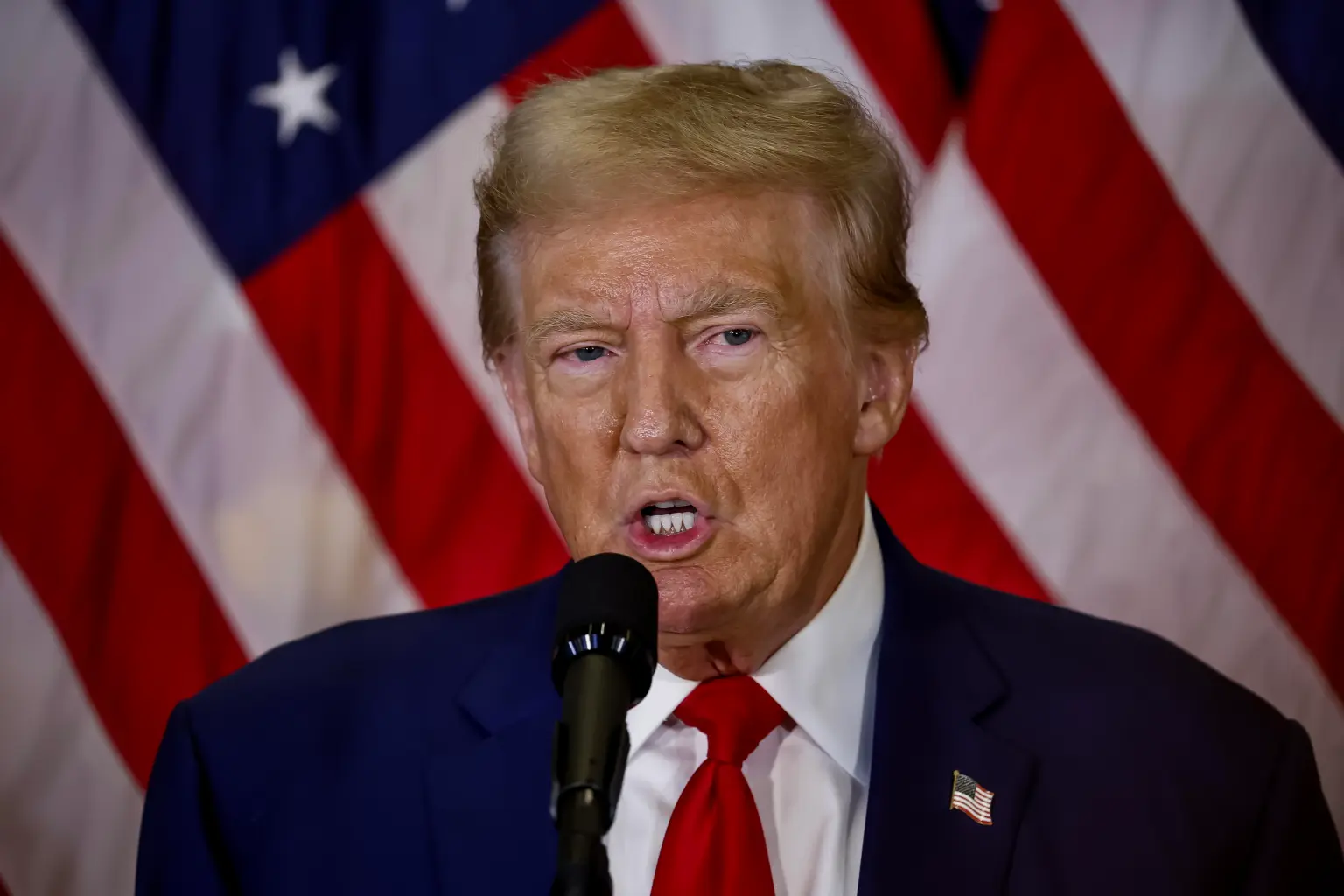
Cuba reiterated on Tuesday its willingness to engage in dialogue with the United States, just weeks before Republican President Donald Trump assumes office. During his first term, Trump halted the historic rapprochement between the two countries, which had been initiated just ten years earlier by Democrat Barack Obama.
“It will not be Cuba that proposes or takes the initiative to suspend the existing dialogues, to suspend the existing cooperation. Not even the discreet exchanges on some sensitive issues,” said Cuban Deputy Minister of Foreign Affairs Carlos Fernández de Cossío at a press conference in Havana.
“We will be attentive to the attitude of the new government, but Cuba’s stance will remain the same as it has been for the last 64 years. We are willing to develop a serious, respectful relationship with the United States, one that protects the sovereign interests of both countries,” he added.
His statements come on the occasion of the tenth anniversary of the historic rapprochement announcement between Washington and Havana.
On December 17, 2014, Cuban leader Raúl Castro (2006-2021) and Barack Obama (2008-2016) announced the beginning of a thaw in relations, which led to the restoration of diplomatic ties in 2015, after more than half a century of confrontation.
This process of thawing bilateral relations was later halted by businessman Donald Trump, who significantly reinforced economic sanctions against the communist-ruled country. The Republican will return to the White House on January 20.
Cuba, under a U.S. trade embargo since 1962, was re-listed in 2021 on the “blacklist of countries supporting terrorism,” blocking financial and economic flows to the island of 10 million inhabitants.
Subsequently, the administration of current Democratic President Joe Biden made only slight adjustments to the sanctions and also kept Cuba on this list. However, his administration resumed bilateral contacts with Havana on migration issues and the fight against terrorism.
International
Mexican government to use church atriums for gun surrender program to combat violence

The atriums of Mexican Catholic churches will be used for the voluntary surrender of weapons in exchange for economic and legal incentives as part of a plan announced on Tuesday by the government to reduce violence.
According to the Mexican government, there is a link between the illegal trafficking of weapons—almost entirely coming from the United States—and the spiral of criminal violence that has plagued the country since late 2006, when a controversial military anti-drug offensive was launched.
“The idea is to set up areas in the church atriums where people can voluntarily surrender their weapons, and in return, they will receive financial resources based on the weapon they are turning in,” explained President Claudia Sheinbaum during her regular press conference.
The left-wing leader emphasized that the program, called “Yes to Disarmament, Yes to Peace,” guarantees that those who surrender their weapons will not face any “investigation.”
“What we want is to disarm. This will be implemented next year. We also did it in Mexico City, and it had significant results,” added the former mayor of the capital, with a population of 9.2 million.
The disarmament plan is part of the government’s “comprehensive security strategy,” one of whose pillars is promoting a culture of peace, especially in regions severely affected by organized crime violence, Sheinbaum pointed out.
More than 450,000 people have been murdered in Mexico since the government launched its military-led anti-drug operation, alongside about 100,000 people who have gone missing.
Despite being a secular state, the Mexican Catholic Church has played a key role in efforts to contain violence, with priests acting as mediators between citizens and criminals. Several clergy members have been killed for this cause.
Just last week, the Catholic hierarchy called on cartels to declare a truce in their violent actions during the celebration of the Virgin of Guadalupe on December 12 and the upcoming Christmas holidays.
-
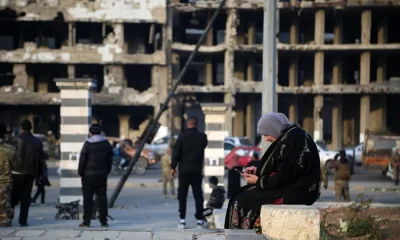
 International3 days ago
International3 days agoFrance will send a diplomatic delegation to Syria after 12 years without official representation
-

 Central America4 days ago
Central America4 days agoCosta Rica takes step toward full membership in Pacific Alliance to Stimulate Trade and Jobs
-

 Central America2 days ago
Central America2 days agoEl Salvador’s $9.663 billion budget for 2025 focuses on key sectors with no new debt issuance
-

 Central America4 days ago
Central America4 days agoHonduras Seizes Over 26 Tons of Cocaine in 2024, Marking Major Drug-Fighting Achievements
-
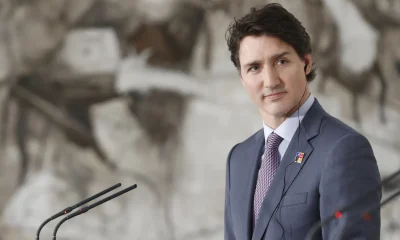
 International2 days ago
International2 days agoChrystia Freeland resigns as Canada’s deputy PM over dispute with Trudeau on U.S. Tariff Threats
-

 International4 days ago
International4 days agoGustavo Petro visits the Galápagos Islands for bilateral talks with Ecuador’s Daniel Noboa
-

 International2 days ago
International2 days agoVenezuela announces 179 new releases in post-election violence cases
-

 International2 days ago
International2 days agoAt least 12 injured in shooting at abundant life christian school in Wisconsin
-

 International2 days ago
International2 days agoTrinidad and Tobago Education Minister Lisa Morris-Julian dies in house fire with her children
-

 International2 days ago
International2 days agoEl Salvador’s bitcoin reserves soar in value as cryptocurrency’s bullish surge continues
-

 International2 days ago
International2 days agoMilan’s Via MonteNapoleone overtakes Fifth Avenue as world’s most expensive retail destination
-

 International2 days ago
International2 days agoNearly 40 dead in Istanbul after consuming contaminated alcohol in six weeks
-

 International3 days ago
International3 days agoMaría Corina Machado says that Nicolás Maduro is “cornered” inside and outside Venezuela
-
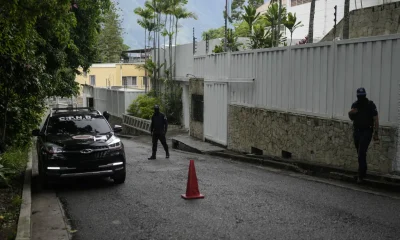
 International4 days ago
International4 days agoVenezuelan opposition in Argentine embassy urges Brazil to expedite safe passage
-

 Sports5 hours ago
Sports5 hours agoReal Madrid clinches fourth Intercontinental Cup with 3-0 victory over Pachuca
-

 International3 days ago
International3 days agoNetanyahu: “Israel’s policy in Syria will depend on the emerging reality”
-

 International4 days ago
International4 days agoMayor Brandon Johnson Vows to Protect Chicagoans from ICE Actions
-

 International4 days ago
International4 days agoEcuador police intercept major drug shipment destined for Europe
-

 Central America5 hours ago
Central America5 hours agoAmnesty International condemns Nicaragua’s unprecedented repression of dissent
-

 International22 hours ago
International22 hours agoHomemade landmine explosion in Michoacán kills two soldiers, injures five
-

 Central America5 hours ago
Central America5 hours agoEl Salvador’s MARN monitors ongoing seismic activity in La Unión department
-
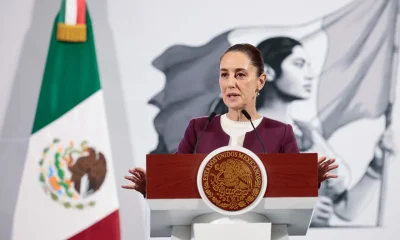
 International5 hours ago
International5 hours agoMexico requests extradition of ‘Mini Lic’ for murder of journalist Javier Valdez
-

 International22 hours ago
International22 hours agoColombian nationals arrested for human trafficking and disappearance of migrant boat
-
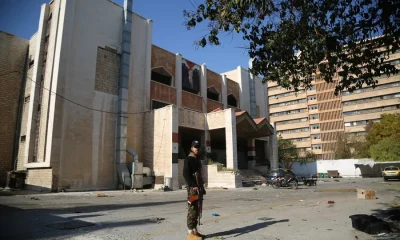
 International3 days ago
International3 days agoThe new Syrian authorities plan to end compulsory military service
-
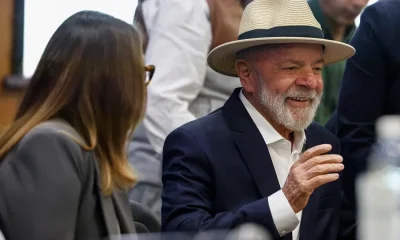
 International3 days ago
International3 days agoLula asks for severe sanction if the guilt of general arrested for coup is proven
-

 International3 days ago
International3 days agoThe Constitution of Venezuela, a quarter of a century later
-

 International22 hours ago
International22 hours agoAustrian man arrested in Croatia with deceased woman as passenger in his car
-

 International5 hours ago
International5 hours agoNASA delays return of two astronauts stranded on ISS until at least March
-

 International5 hours ago
International5 hours agoMexican government to use church atriums for gun surrender program to combat violence
-

 International5 hours ago
International5 hours agoCuba’s government stresses openness to serious, respectful U.S. relations
-

 International5 hours ago
International5 hours agoBegoña Gómez defends her actions as investigations into her role at Complutense University continue
-

 International22 hours ago
International22 hours agoEcuador announces debt swap of $1.527 billion to protect Amazon rainforest
-

 International5 hours ago
International5 hours agoPatient hospitalized with severe avian flu case in Louisiana, CDC reports
-

 International5 hours ago
International5 hours agoUkraine’s security a priority as NATO discusses future of conflict with Russia










































































